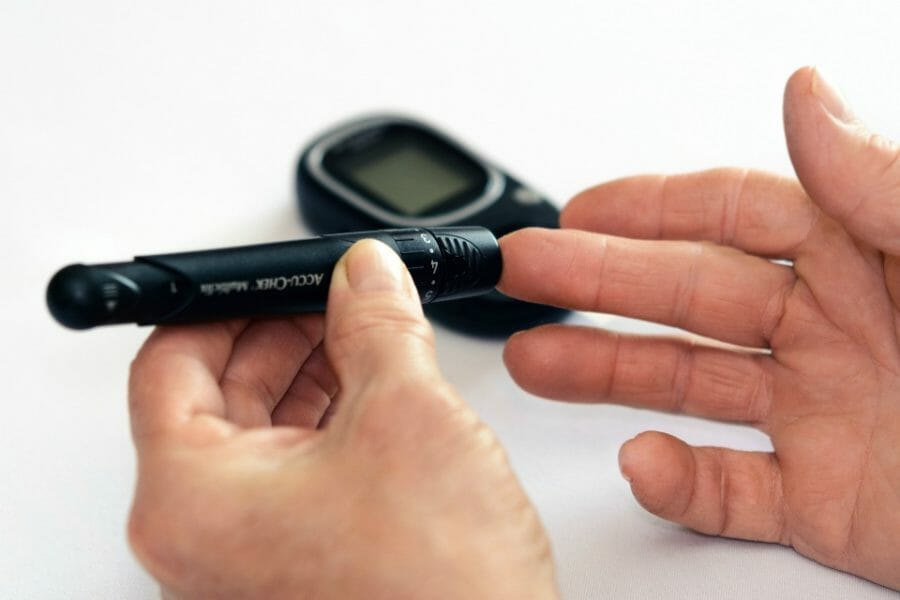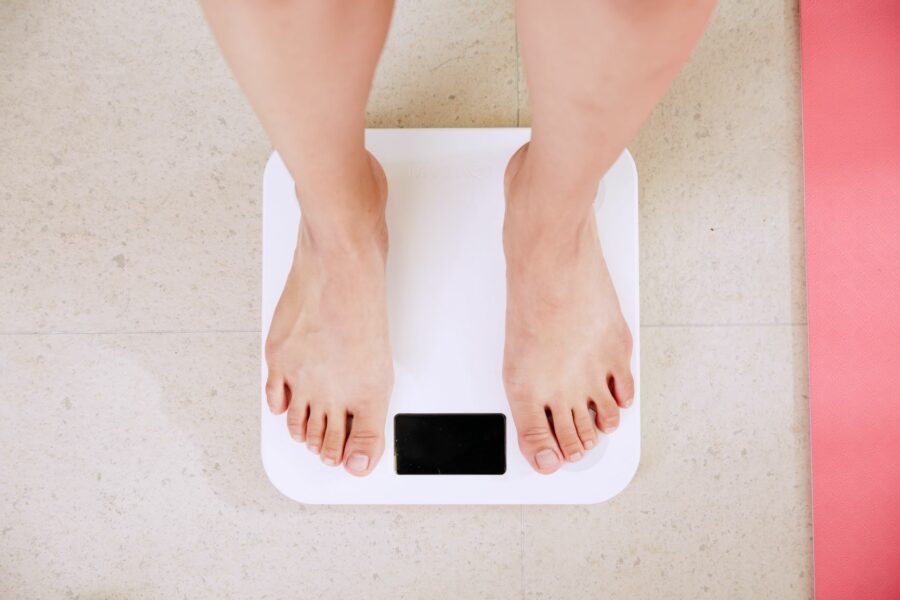The link between your hormones and weight loss or gain
Hormones are chemical messengers that perform certain functions in our body, such as regulating our weight. Leptin, insulin, as well as sex hormones and growth hormones help influence our appetite.
Your weight is directly linked to your hormones and is regulated by a hormonal system.
In fact, it’s a unique and complicated balance between what you eat, how much you exercise, the environment you are in and the way your body works.
Often, it can be quite easy to lose the first few kilograms and even maintain weight loss for a few months but after that initial weight loss, the kilograms can creep back or remain stagnant.

The role hormones play in regard to weight loss
Hormones are chemical messengers that perform certain functions in our body, such as regulating our weight. Leptin, insulin, as well as sex hormones and growth hormones, help influence our appetite, metabolism, and body fat distribution.
When there are excess fat cells, the signalling can become confused, overstimulated and fatigued.
Researchers say that the visceral fat on our abdomens (belly fat) is the most dangerous due to the results of what the fat cells are now telling our bodies.
Important hormones linked to weight loss or gain
Insulin

Insulin is one of the most important hormones when it comes to weight loss and gain. It’s made by the pancreas and is responsible for storing blood sugar.
After you eat a large meal, insulin is released into the bloodstream to ensure that blood sugar levels remain stable. Insulin also decides how much fat needs to be stored.
If your insulin is imbalanced, it can lead to weight gain and type 2 diabetes.
Leptin

Leptin is a fat hormone that in its presence helps you reduce your food intake and increase energy expenditure.
This often leads to weight loss. Some research has shown though that after the initial weight loss, especially if done rapidly, leads to leptin levels being very low within the body.
These lower levels of leptin can lead to a person being influence to increase their food intake through overeating and also decreasing their metabolism and energy expenditure and gain weight or make it difficult to lose more.
Evolutionarily, the body doesn’t want to lose its fat. The lesson here is to not lose weight too dramatically and to be aware of your appetite.
Cortisol

Cortisol is the primary hormone released when we are stressed. It is also responsible for regulating the levels of glucose in the bloodstream and our metabolism.
During times of fasting or when glucose is depleted in our body, cortisol ensures that more glucose is created through a metabolic process called gluconeogenesis. With lower blood sugar levels, people will often crave sugary or energy-dense fatty foods.
With young children, the stress in our lives as mothers is dramatically increased in comparison to pre-kids. Heightened by a lack of sleep, cortisol tends to rise even higher.
The challenge here is to not associate or compensate stress-filled moments with cravings for sweet or fatty foods and if that habit is already present, try and substitute it for a new habit, like a glass of water or 20 star jumps.
Cravings last around 20 minutes. So you can win them over if you can distract yourself.
Oestrogen

Oestrogen is the female sex hormone that is known to cause weight gain. It is thought that this was due to evolutionary requirements in which adequate fat reserves were needed to become pregnant and safely carry and subsequently breastfeed an infant.
Obviously, in an environment of excessive food availability, this isn’t of such concern, but as women we are predisposed to create subcutaneous fat for reproduction.
This does not mean that oestrogen will make you fat although it does mean that it can be associated to fat disposition within the body.
Ghrelin

Ghrelin is known as the hunger hormone. It’s released in the stomach and tells our body we are hungry.
There’s a greater amount of this hormone in our body before we eat, and lowest after. It has more roles than that though, and it also inhibits insulin secretion, and decreases thermogenesis to regulate energy expenditure.
Unexpectedly, Ghrelin levels are normally lower in people with obesity, and scientists think they are more sensitive to it.
Adiponectin

In people with a healthy weight, adiponectin levels are quite high, but they drop dramatically in overweight and obese people.
What adiponectin does in the body is important for weight control, as it encourages the metabolism of fatty acids, lipids and saccharides and prevents atherosclerosis from developing.
It also helps to control blood sugar levels and makes the body more sensitive to insulin. If you have smaller amounts of this released, then the metabolism of fats and sugars will be slowed.
Armoatase

Armoatase is involved in sex hormone metabolism. It is an enzyme that helps convert testosterone to an oestrogen.
It can be found in lots of cells, not just fat cells, but having excessive fat cells, stimulates more production.
Thyroid

Lastly, our thyroid hormones play a huge part. Hypothyroidism or low thyroid hormones slow down metabolism, resulting in weight gain or the inability to lose weight, as all of the functions of the body are slowed.
Stress can cause this, as well as autoimmune disorders and nutritional deficiencies..
Balance out your blood sugars, get a good night’s sleep, make sure you are getting all your nutrients by eating a well-balanced diet, avoid toxins by choosing organic, and learn to manage stress!
Ways to balance your hormones to keep them in check
- Get enough rest
- Exercise often
- Take care of your gut health
- Reduce stress
- Eat little and often
- Lower your sugar intake
- Eat a healthy diet
- Meditate or switch off your devices to help you properly relax
- Reduce your calories if you are overweight










